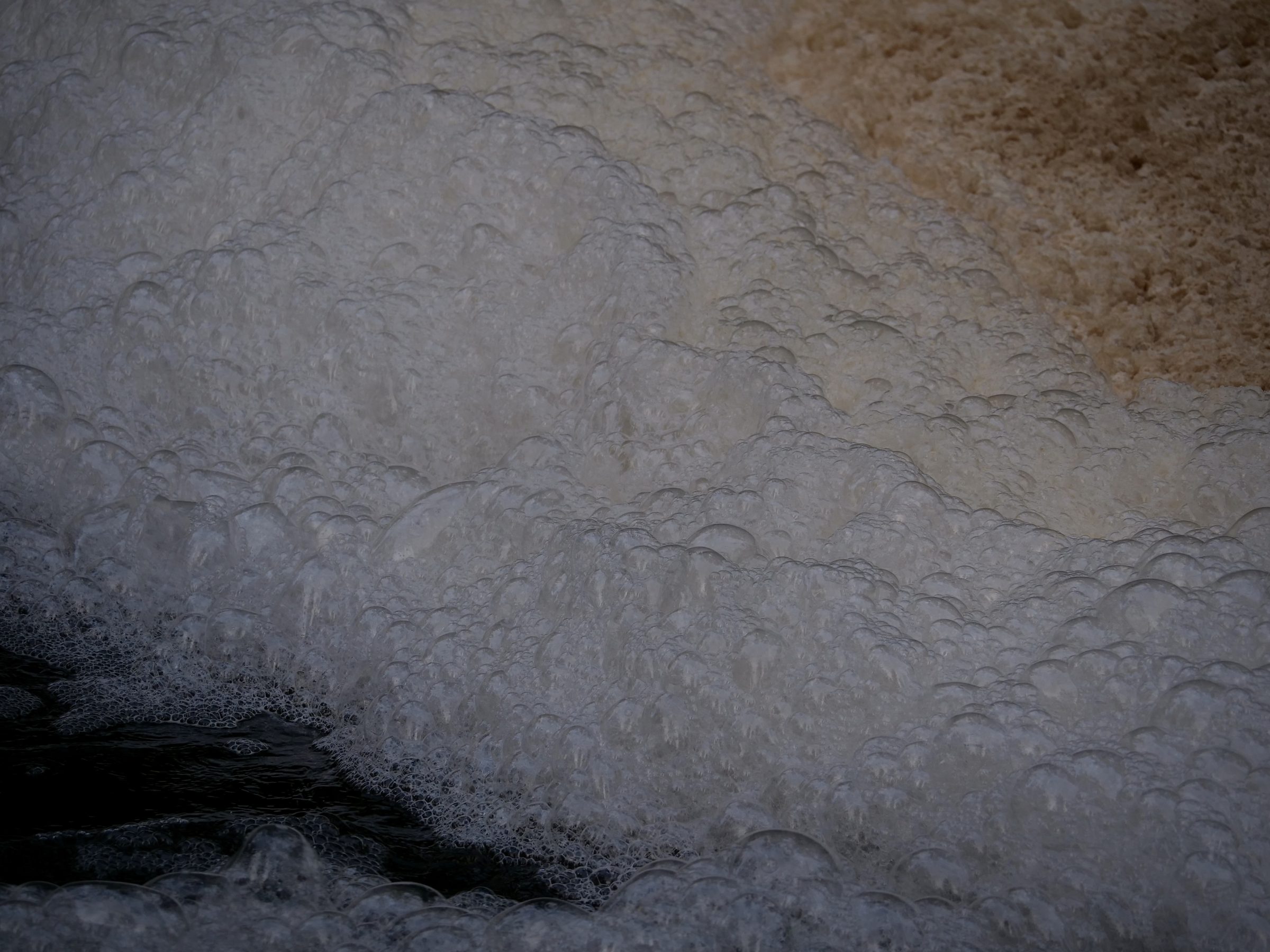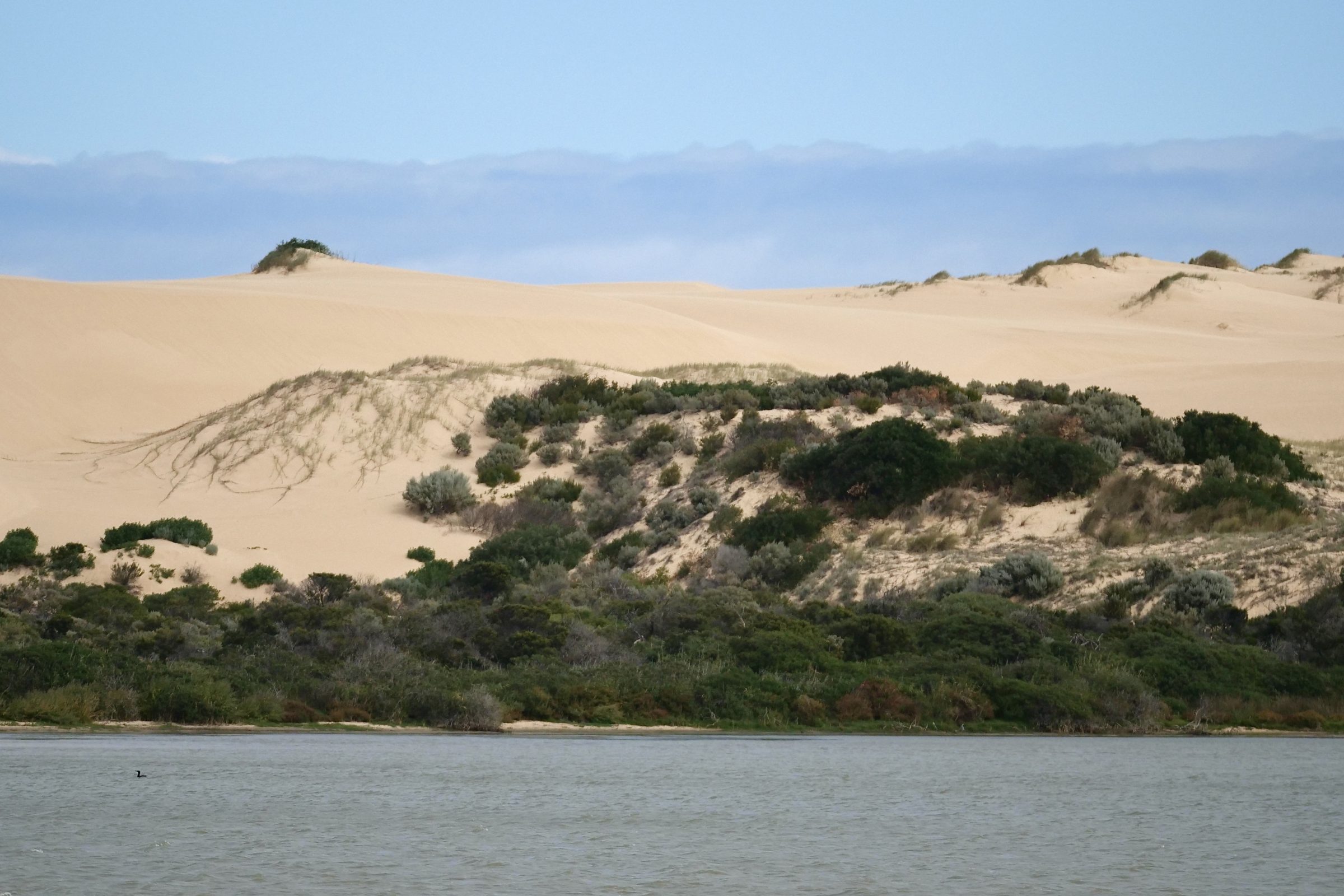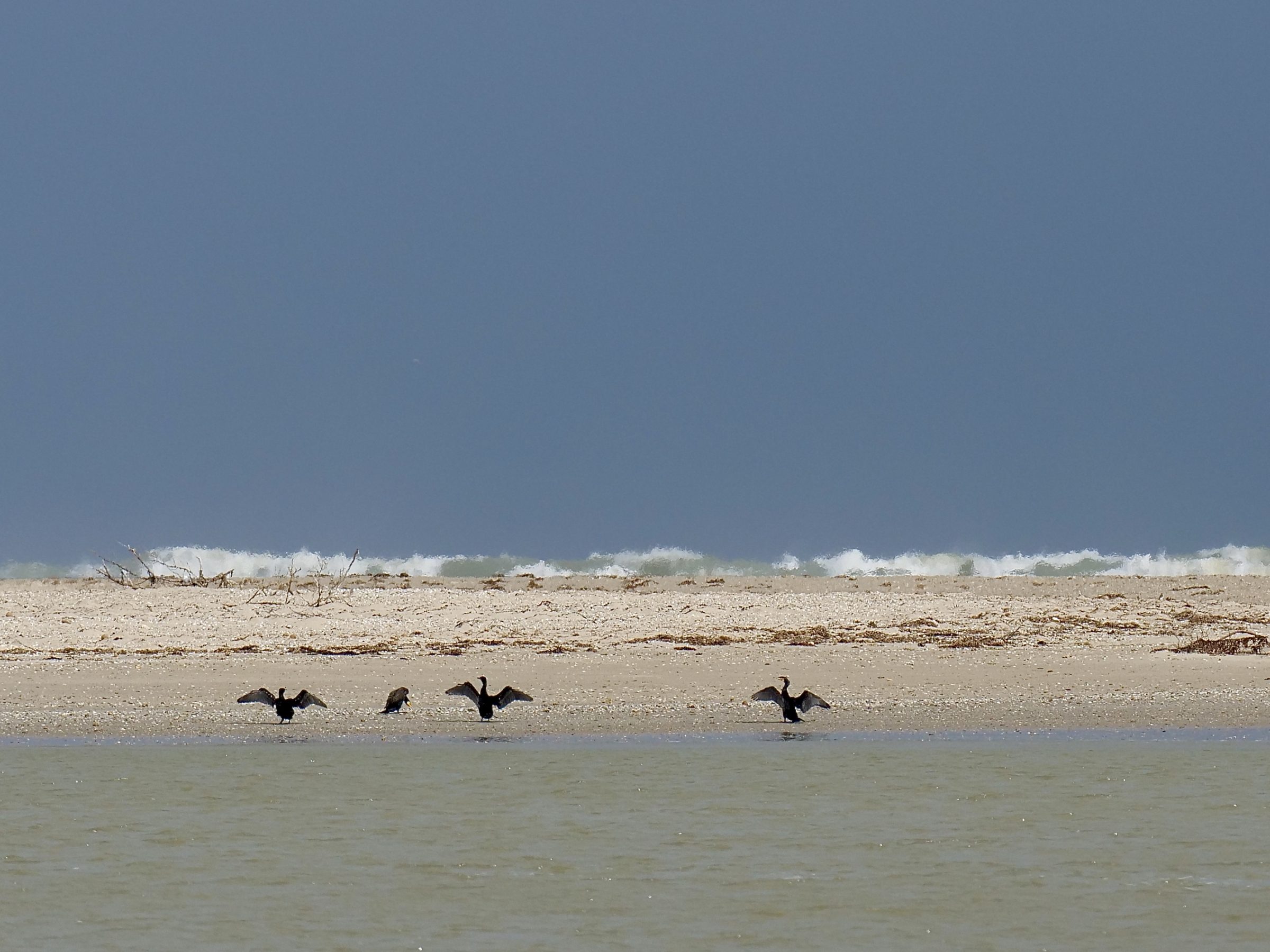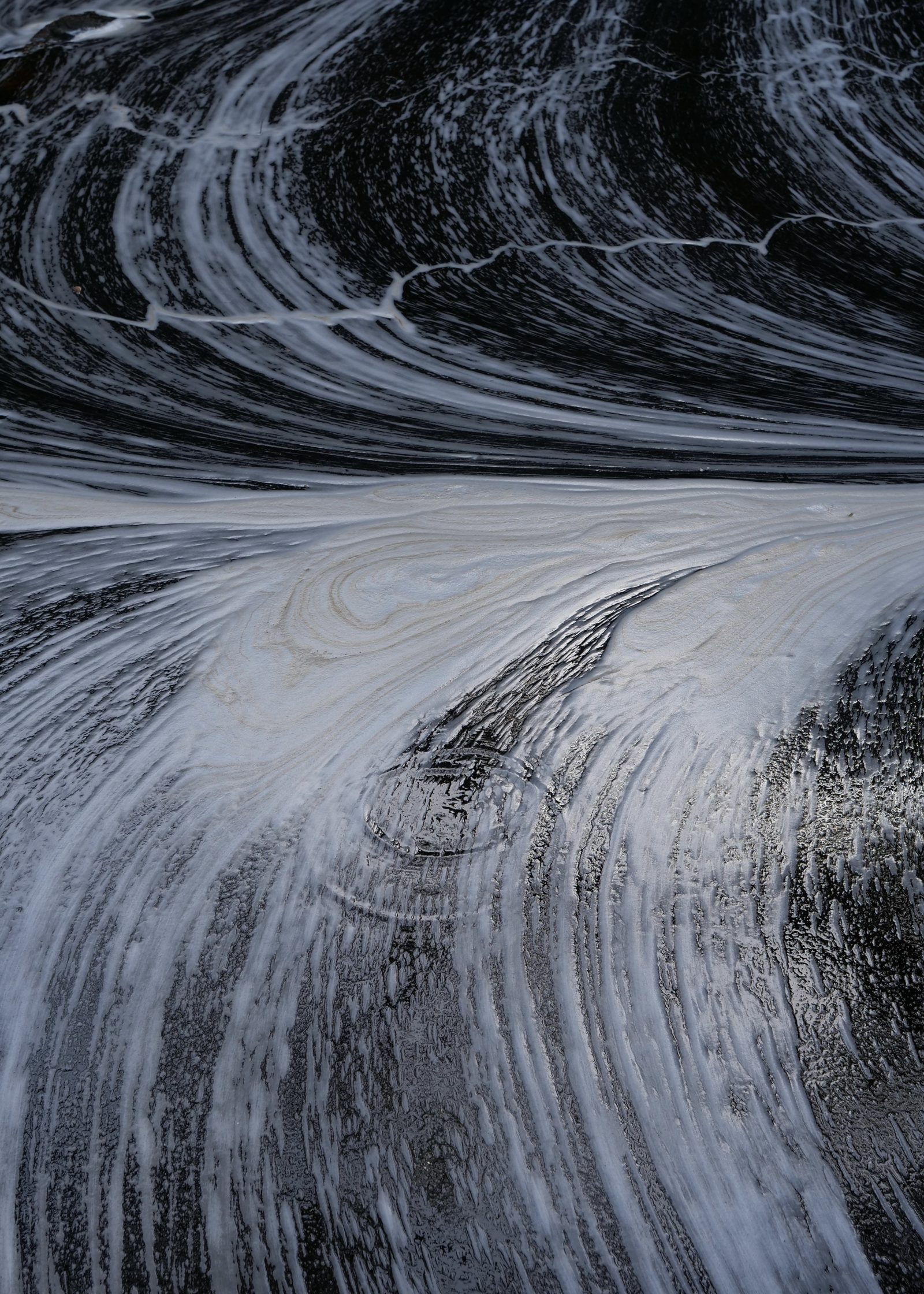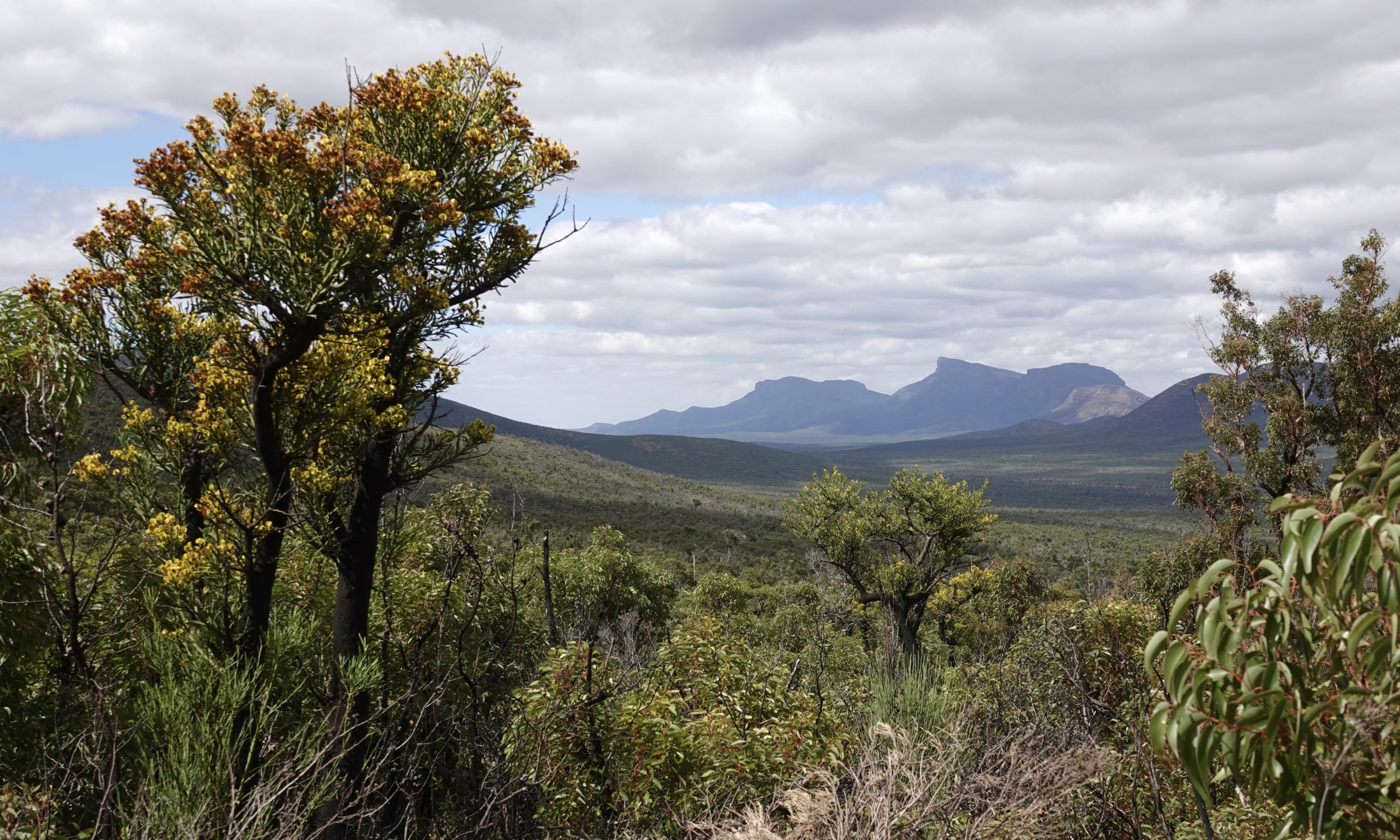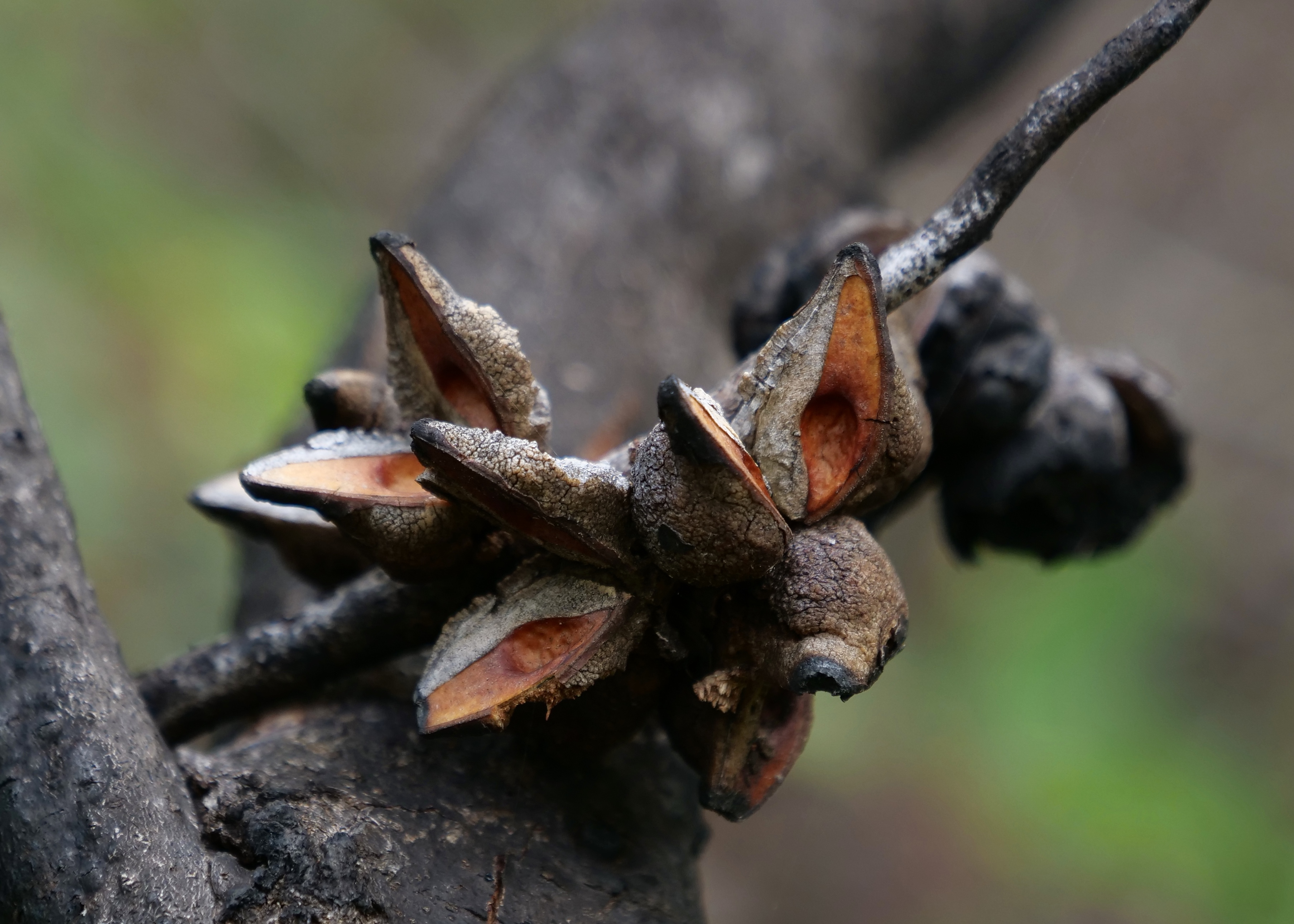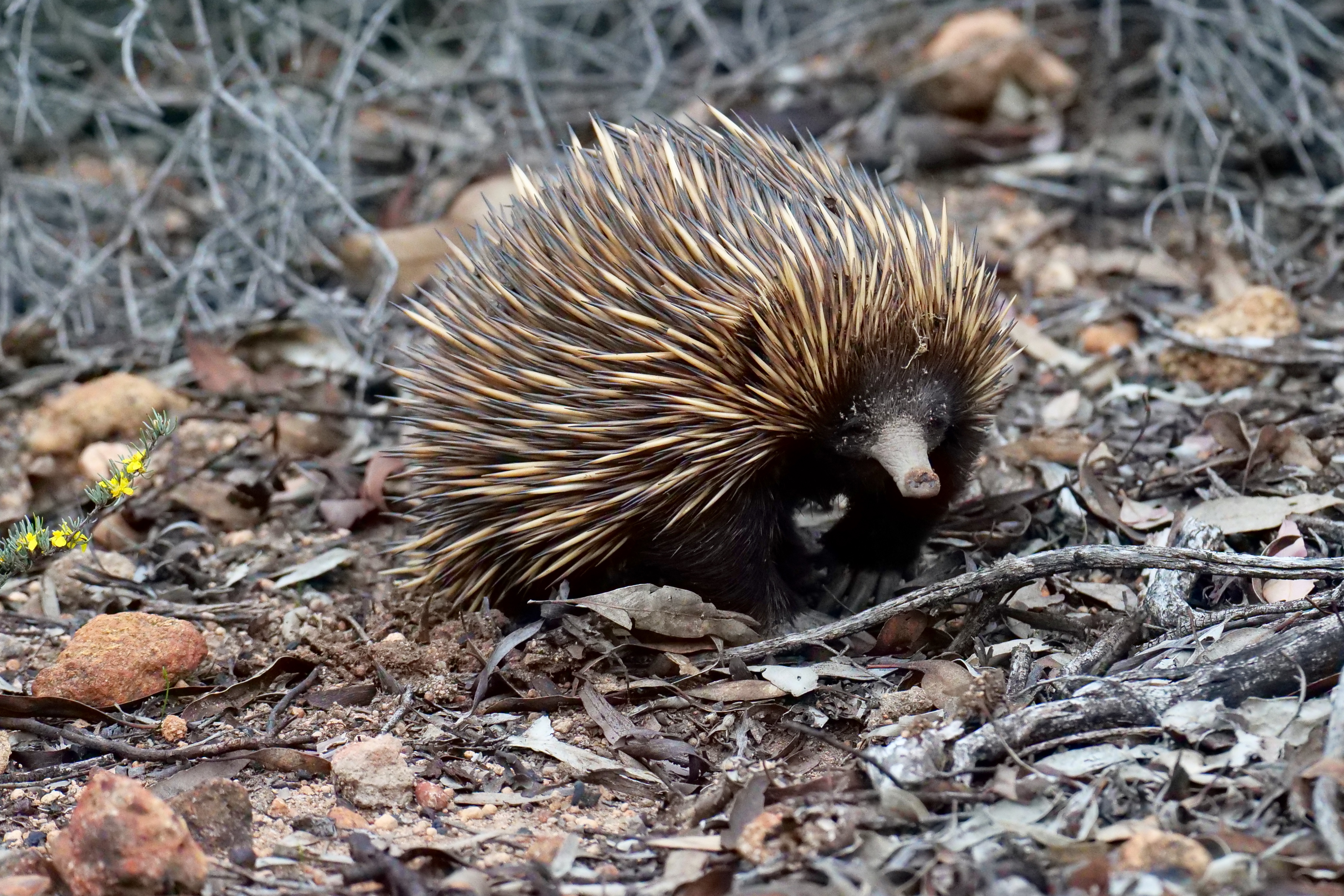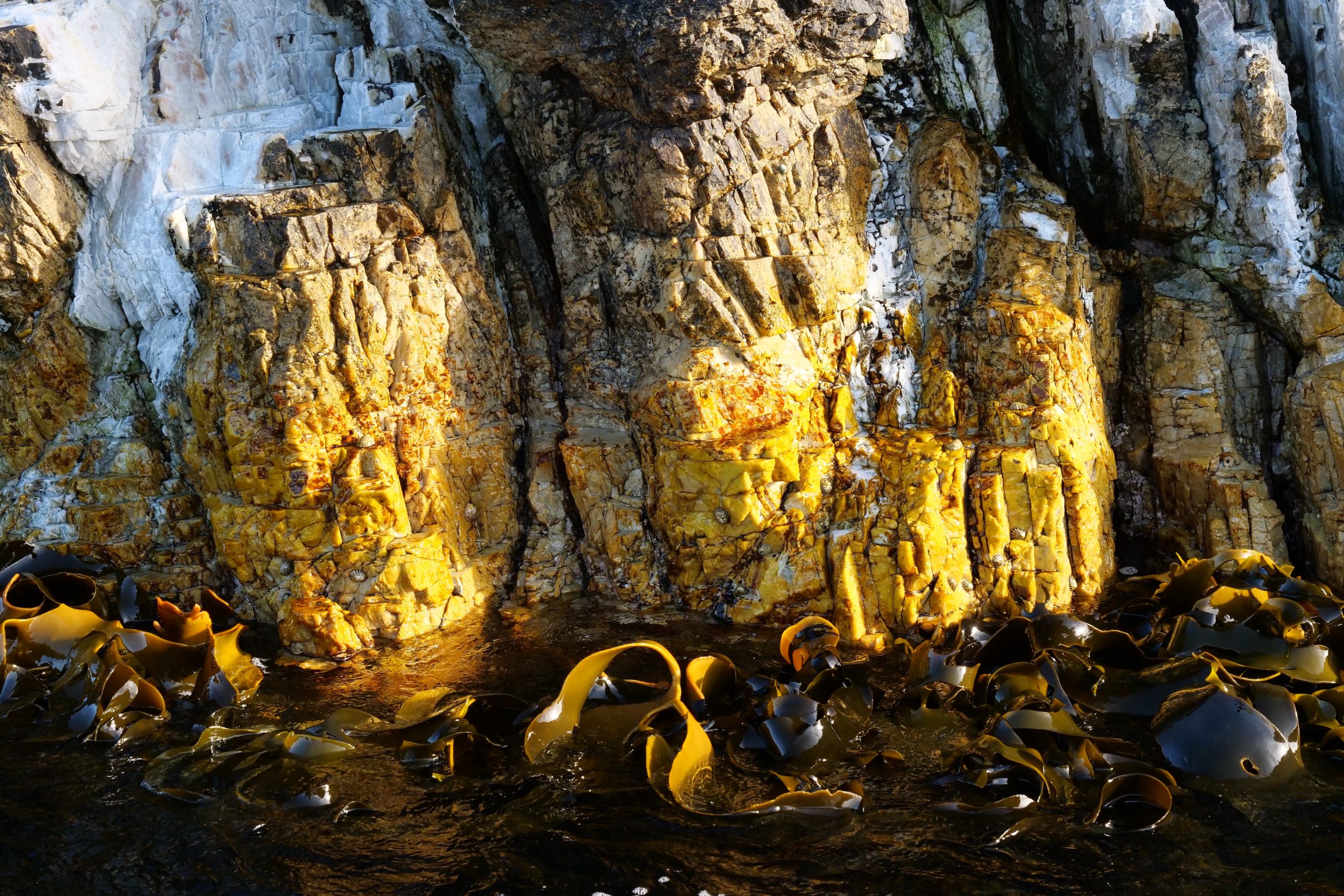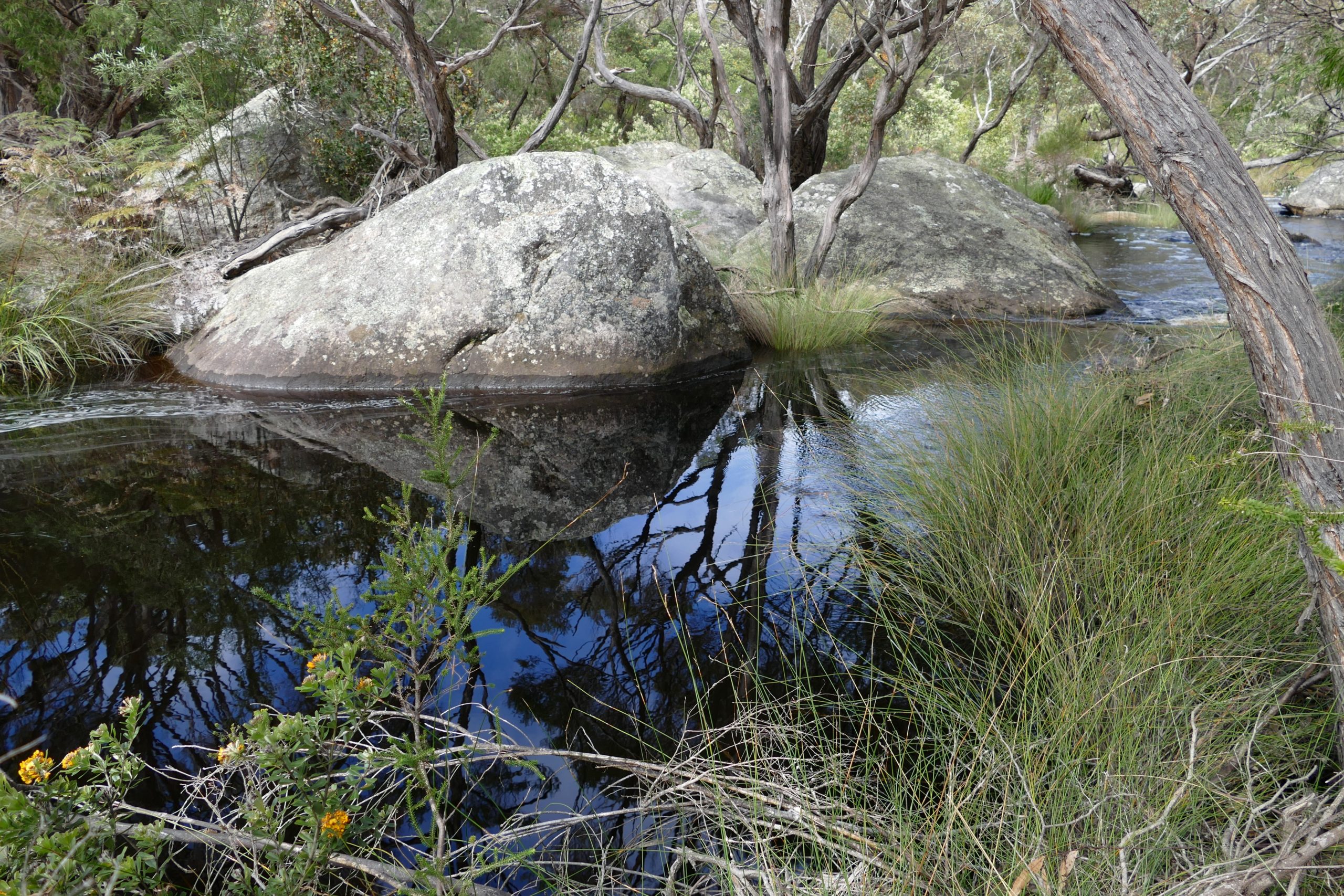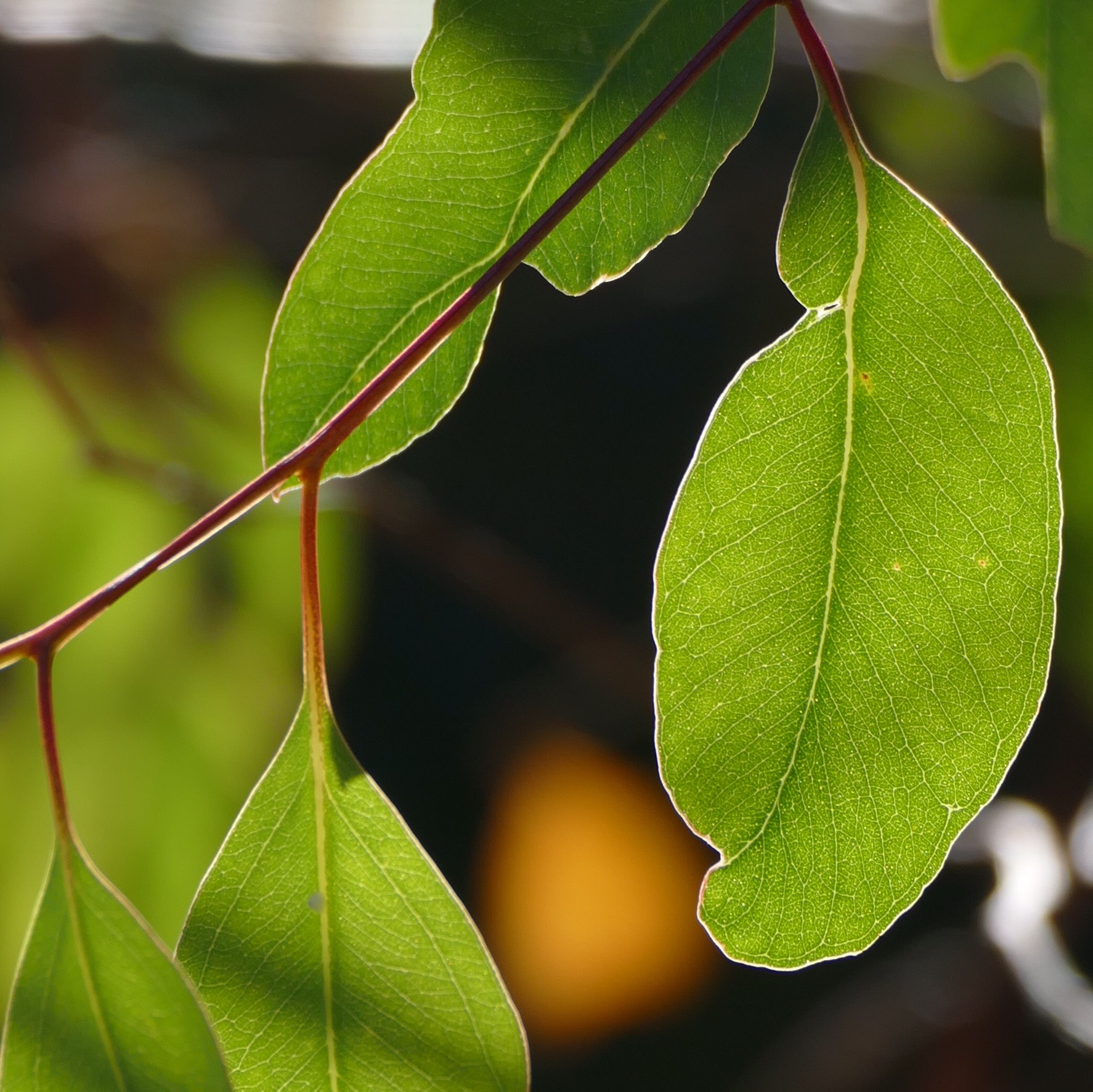At 1,159 square kilometres Stirling Range National Park is “large”, or “small”, depending on one’s perspective.
Four hours drive northwest, Perth – Western Australia’s sprawling metropolis – occupies more than five times as much ground.
The Stirlings’ “footprint” is less than one 209th of the United Kingdom’s 242, 495 square kilometres.
Botanically, however, the Stirling Range is much the “bigger”/“hotter” place!
It has more flowering plant species than does the entire UK; many of them grow only in or near the Stirling Range.
Two recent “catastrophic” fires seemingly “destroyed” much more than half of what had been growing there…
